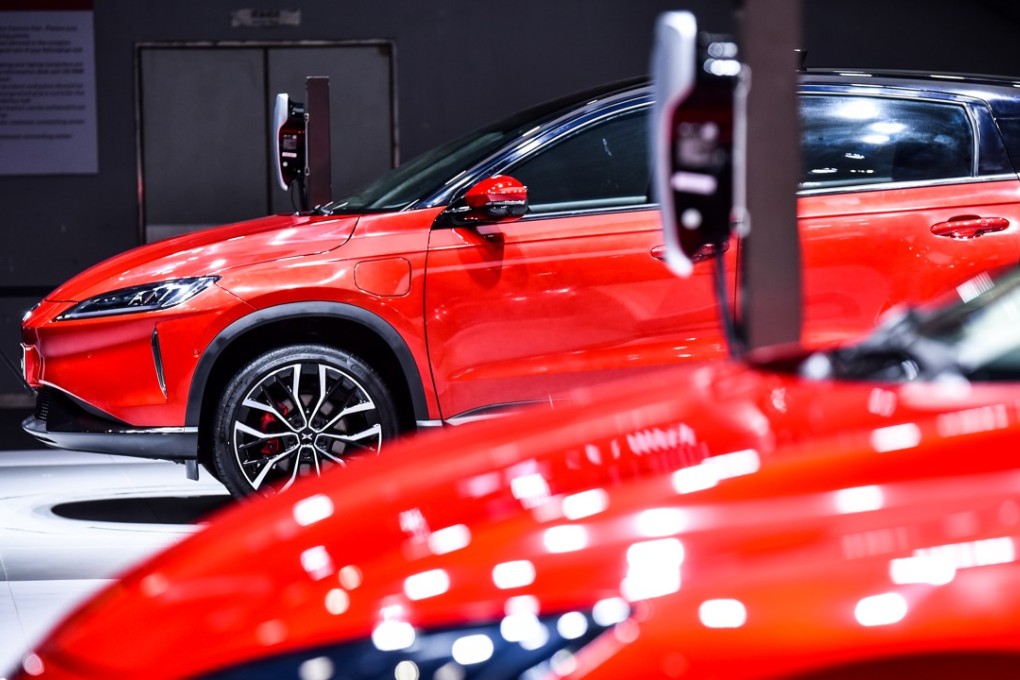Tesla challenger Xpeng to roll out first electric car next month ahead of new credit system designed to promote China’s EV market
- Chinese start-ups are investing billions of dollars in advanced technologies to challenge Telsa and established carmakers in EV market

Xpeng Motors, the electric car start-up backed by Alibaba Group Holding, said it will roll out its first mass-produced model next month as more Chinese firms step up to challenge US giant Tesla for the hearts and minds of local drivers.
The move comes 17 months after the Guangzhou-based carmaker received its safety certification from the industry watchdog and 10 months since it unveiled the electric car model at the CES show in Las Vegas.
“It’s a challenge for any new EV manufacturer to ramp up production and meet delivery targets,” Xpeng chairman and chief executive He Xiaopeng said on the sidelines of the Guangzhou auto show on Friday, adding that quality has been the priority over speed to market.
“It is not a race. There’s no short cut. It’s about gaining consumer confidence in our products and services and building a solid reputation for the EV sector in China,” he said.
Xpeng, or Xiaopeng in Chinese, is one of dozens of electric car start-ups that have emerged in recent years after the government started issuing special manufacturing permits to companies outside traditional auto industry players.
Venturing into territory dominated by foreign carmakers like GM, Toyota Motor and Volkswagen, the Chinese start-ups are investing billions of dollars in advanced technologies ranging from autonomous driving and voice control to other bespoke smart features, hoping to upend the giants and take on Tesla which is close to building a factory in Shanghai, its first factory outside the US.